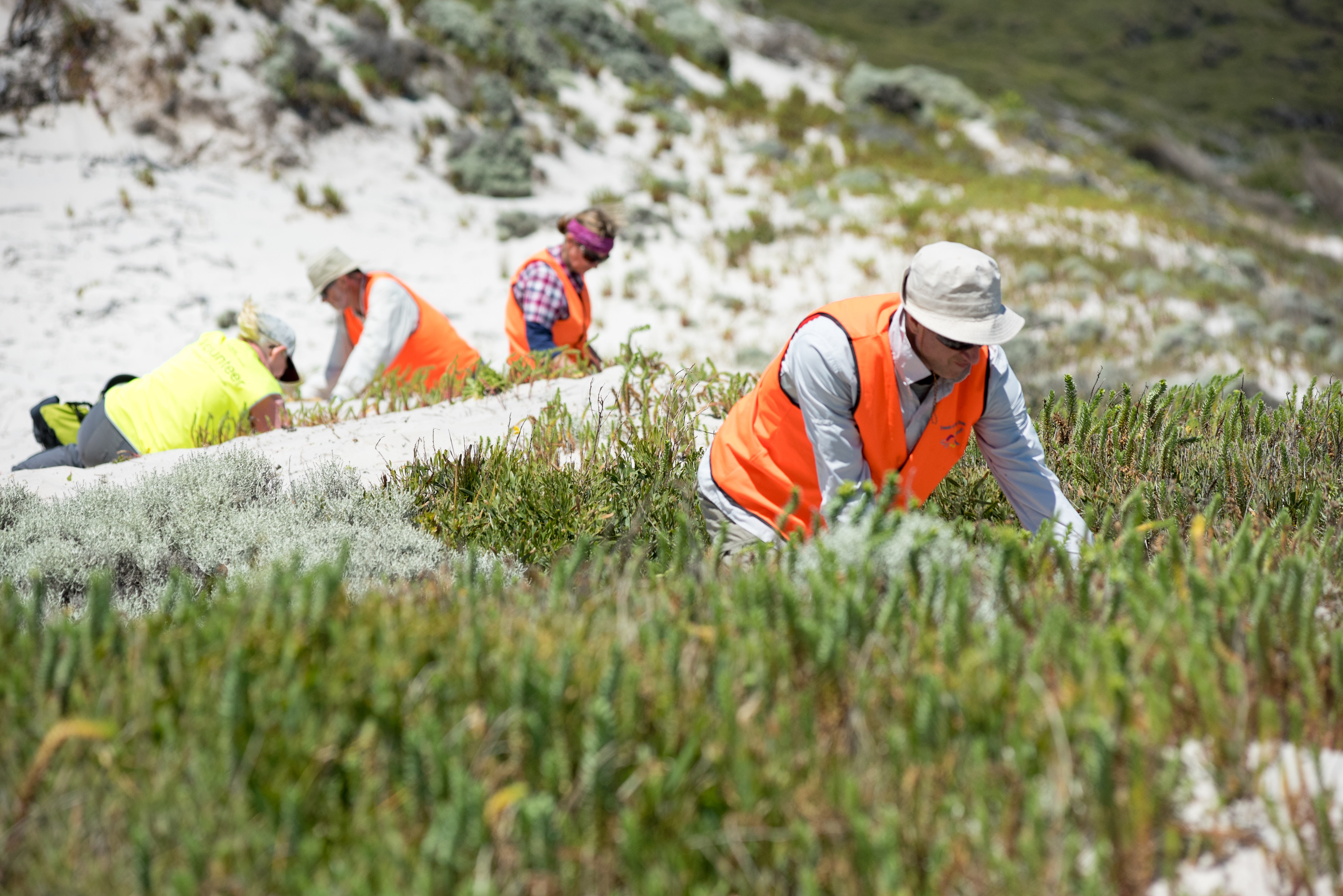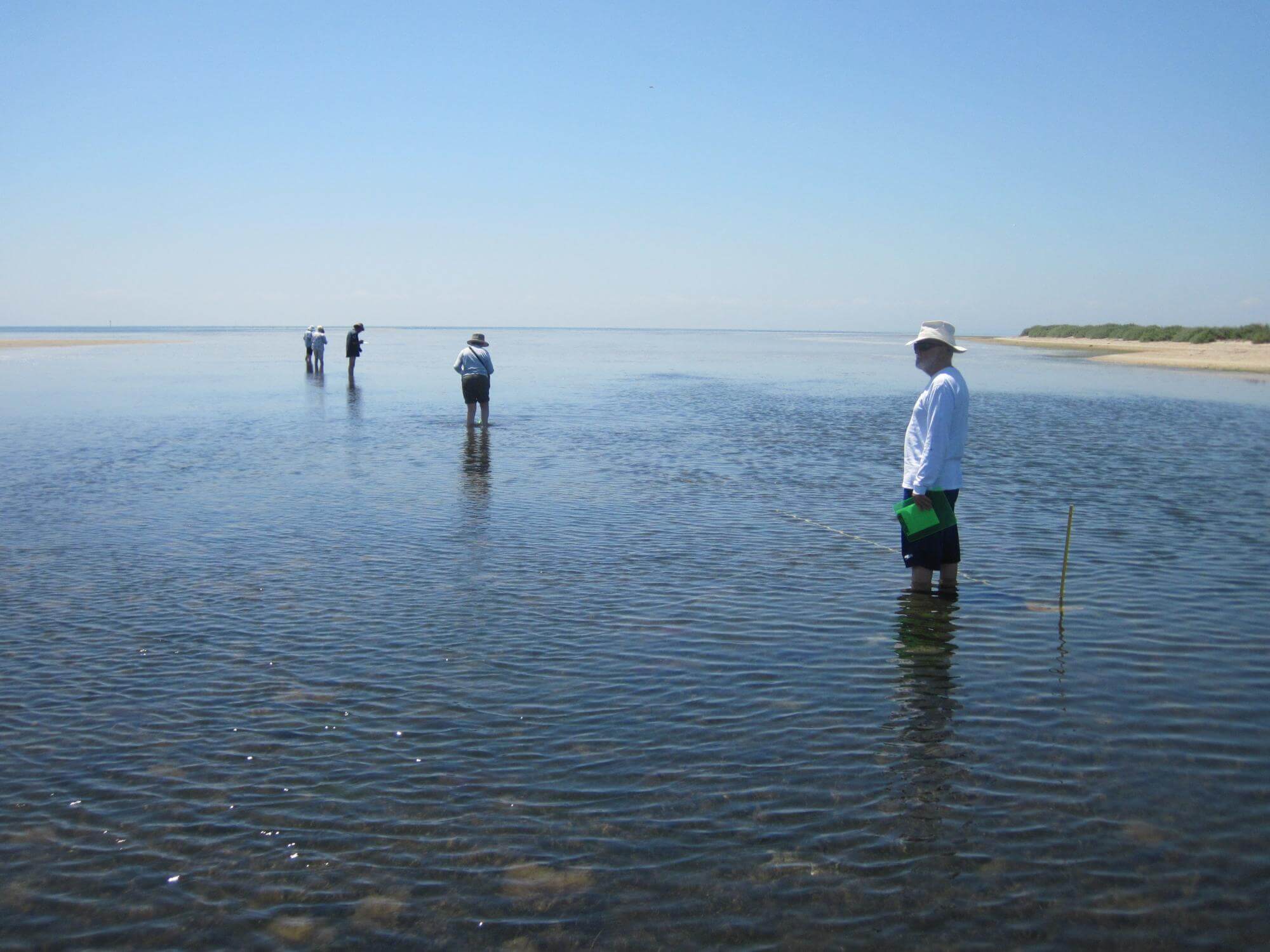Environmental stewardship refers to an ethic of taking care of the natural environment.
Stewardship and Collaborative Management refers to a broad participation in stewardship activities – from the local level, through to Victorian Government legislative and policy frameworks.
Engagement and partnerships between agencies and communities enable co-creation of policy which can deliver stewardship outcomes on the ground.
While we can measure numbers of participants involved in relevant programs, it is difficult to measure institutional or policy processes and effectiveness. For this reason, many of the indicators for this theme provide a narrative exploration and assessment rather than precise measurements. It is intended that this approach can raise issues and lead to new ways of measuring aspects of stewardship and collaborative management for future state of the environment reporting.
Stewardship
There are many participants involved in stewardship activities. At the community level this includes Traditional Owners caring for Country, farmers and other land managers, fishers and others who rely on marine industries, and various volunteer groups involved in environmental protection. Government departments and agencies are also involved in stewardship activities through funding, policy making and program management.
Coastcare Victoria is a community-based program which supports community stewardship of Victoria’s marine and coastal environments. Volunteering is a key element of Coastcare's activities, and it aims to foster community appreciation of marine and coastal areas. The Coastcare program supports hundreds of community groups and volunteers working to protect and enhance Victoria's coastline. Activities include revegetating coastal areas, building boardwalks and tracks, fencing, monitoring native shorebirds and animals, presenting education and awareness raising sessions, plantings, landscaping and protecting cultural sites. A total of 13,444 people participated in Coastcare activities during 2019-20, an increase from 10,500 recorded in the previous financial year (Coastcare data provided by DELWP).
Citizen scientists have been involved in marine and coastal programs, even during COVID-19 lockdowns when virtual projects enabled seal counts (via webcam) and other activities to continue. The range of these programs is broad and they can provide important data for scientific analysis where appropriate levels of rigour are applied to data collection and analytical methods. It is important for the DELWP Marine and Coastal Knowledge Framework to identify the role of, and restraints on, volunteers and citizen scientists in contributing to the evidence base of critical marine and coastal scientific knowledge. The current development of a citizen science framework for Victoria is a promising development that can help address some of these requirements and challenges to expand citizen science activities.
Although evidence shows many committed volunteer groups that contribute to protecting, conserving and improving marine and coastal environments, less than six percent of Australians who volunteer are involved in environmental activities.
Collaborative management
Institutional knowledge and capacity are acknowledged as critical for effective environmental policy. Following findings from the State of the Bays 2016 Report, Victoria has put in place a Marine and Coastal Knowledge Framework to support the knowledge needs of planning for Victoria's marine and coastal areas. One outcome has been Coastkit - an online system for marine and coastal spatial data.

Inspiring stories of caring for the coast
Dive into our case studies which explore coastal stewardship:
- Explore the Gunaikurnai Joint Management program protecting coastal lagoons and wetlands on-Country.
- Did you know that beaches are dynamic systems that change and evolve as waves break on the shore? Citizen scientists are studying beach dynamics with drones through the Victorian Coastal Monitoring Program.
- Citizen scientists are also helping track unusual marine species through Redmap (the Range Extension Database and Mapping Project). The project invites the community to spot, log and map sightings of marine species that are unusual for a given location.
Statewide
Data source: DELWP
Statewide
Data source: VFA Creel Surveys, Ipsos 2018 Marine and Coastal Community Attitudes and Behaviour Report
Statewide
Data source: Australian Bureau of Statistics, DELWP, Parks Victoria
Statewide
Data source: DELWP, Parks Victoria, Tangaroa Blue Foundation, Estuary Watch, RedMap, Atlas of Living Australia, Victorian Fisheries Authority, Victorian National Parks Association
Statewide
Data source: Victorian Environmental Assessment Council, GeoScience Australia, DELWP
Statewide
Data source: Victorian Environmental Assessment Council, GeoScience Australia, DELWP
Statewide
Data source: Engage Victoria
Statewide
Data source: Parks Victoria, Victorian Auditor-General’s Office
Discover more
- View the Victoria Communities web page
- View indicator assessments for communities and stewardship
- You can discover more in the State of the Marine and Coastal Environment 2021 Report.

